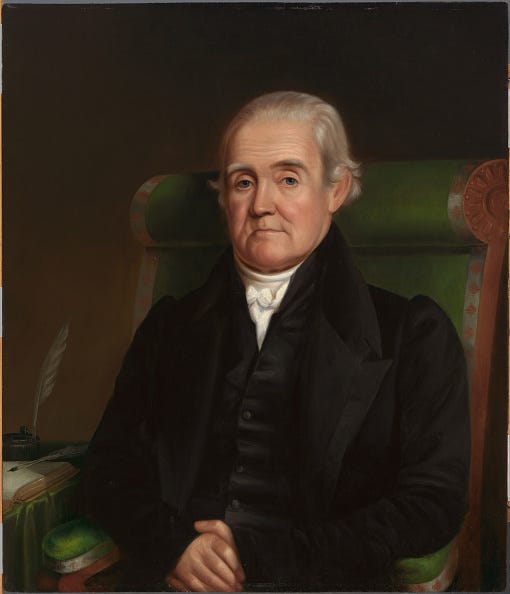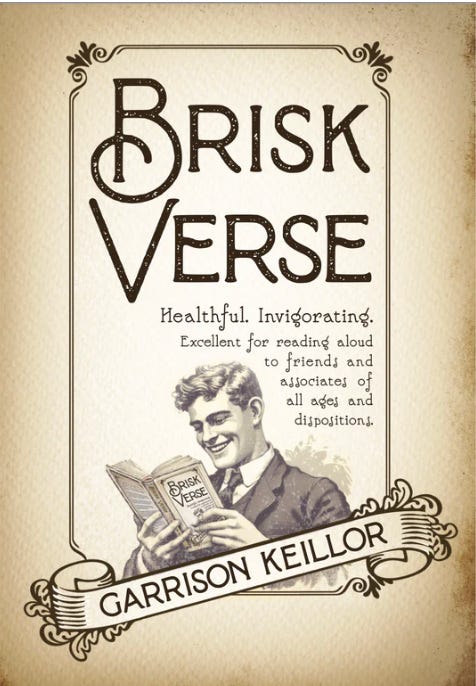The Writer's Almanac from Sunday, April 14, 2013
"This Moment" by Eavan Boland, from In a Time of Violence. © Norton, 1994.
ORIGINAL TEXT AND AUDIO - 2013
It was on this day in 1939 that John Steinbeck published The Grapes of Wrath. The novel tells the story of three generations of the Joad family, who lose their farm in Oklahoma and set off across the country for the paradise of California, only to encounter extreme poverty and corrupt corporations trying to make a profit off them. He wrote the novel at an incredible rate — about two thousands words a day — in a tiny outhouse that had just enough room for a bed, a desk, a gun rack, and a bookshelf. He finished it in about five months. When he was done, he wasn't very satisfied with it: He wrote in his journal, "It's just a run-of-the-mill book, and the awful thing is that it is absolutely the best I can do." And he warned his publisher that it wouldn't be very popular.
It was on this day in 1828 that Noah Webster's American Dictionary of the English Language was published. Webster put together the dictionary because he wanted Americans to have a national identity that wasn't based on the language and ideas of England. And the problem wasn't just that Americans were looking to England for their language; it was that they could barely communicate with each other because regional dialects differed so drastically.
Noah Webster was schoolteacher in Connecticut. He was dismayed at the state of education in the years just after the Revolution. There wasn't much money for supplies, and students were crowded into small one-room schoolhouses using textbooks from England that talked about the great King George. His students' spelling was atrocious, as was that of the general public; it was assumed that there were several spellings for any word.
So in 1783, he published the first part of his three-part A Grammatical Institute, of the English Language; the first section was eventually retitled The American Spelling Book,but usually called by the nickname "Blue-Backed Speller." The Blue-Backed Speller taught American children the rules of spelling, and it simplified words — it was Webster who took the letter "u" out of English words like colour and honour; he took a "g" out of waggon, a "k" off the end of musick, and switched the order of the "r" and "e" in theatre and centre.
In 1801, he started compiling his dictionary. Part of what he accomplished, much like his textbook, was standardizing spelling. He introduced American words, some of them derived from Native American languages: skunk, squash, wigwam, hickory, opossum, lengthy; and presidential, Congress, and caucus, which were not relevant in England's monarchy.
Webster spent almost 30 years on his project, and finally, on this day in 1828, it was published. But unfortunately, it cost 15 or 20 dollars, which was a huge amount in 1828, and Webster died in 1843 without having sold many copies.
The book did help launch Webster as a writer and a proponent of an American national identity. Webster had a canny knack for marketing, traveling around to meet with new publishers and booksellers, publishing ads in the local newspapers for his book wherever he went. He also lobbied for copyright law and served for a time as an adviser to George Washington, and wrote his own edition of the Bible. And his tallies of houses in all major cities led to the first American census.
In his book The Forgotten Founding Father: Noah Webster's Obsession and the Creation of an American Culture (2011) Joshua Kendall argued that Noah Webster would today be diagnosed with obsessive-compulsive personality disorder.
On this day in 1865, President Abraham Lincoln was shot by John Wilkes Booth in Ford's Theatre in Washington, D.C., just five days after the surrender of the Civil War's Confederate leader, General Lee. Lincoln died the following morning.
It was on this night in 1912 that the RMS Titanic struck an iceberg on its way from Southampton, England, to New York City. The ship, on its maiden voyage and carrying more than 2,000 people, was designed with watertight compartments to withstand a head-on or side-impact collision. Instead, it scraped along the side of an iceberg for 10 seconds trying to avoid it, tearing open numerous separate compartments. The accident happened at 11:40 p.m.; less than an hour before, a nearby ship attempted to radio the Titanic to beware of ice ahead. The ship's wireless operator on duty, overwhelmed with his job of relaying personal messages to passengers, replied, "Shut up, shut up, I'm busy ..."
It's the legal birthday of the modern printing press, which William Bullock patented on this day in 1863 in Baltimore. His invention was the first rotary printing press to self-feed the paper, print on both sides, and count its own progress — meaning that newspapers, which had until then relied on an operator manually feeding individual sheets of paper into a press, could suddenly increase their publication exponentially.
Be well, do good work, and keep in touch.®
LIMITED OFFER
We are excited to announce the publication of BRISK VERSE, a brand-new collection of Garrison Keillor’s poetry. This compilation of almost 200 poems will take the reader through whimsy and tomfoolery, solemn thought-provoking lines, mischievous observations, and tons of fun. And it’s the perfect gift. (Father’s Day is coming up soon.) Consider taking advantage of this presale offer for an autographed copy or a copy that includes a personalized greeting.
Autographed copies will ship after May 15th
Personalized copies will ship by May 30th
“Healthful. Invigorating. Good for reading aloud to friends and associates, neighbors, colleagues, bartenders, passersby, even strangers in libraries or on airplanes. One copy of this book will make you the life of the party, a welcome guest in any home, a person of fine taste who also relishes a good time.”






What would we do in our lives without differing letters from our alphabet, and making mearningful unique words, relating stories from the likes of you, Garrison, and my now long-gone Aunt Bridget from Saskatchewan. She had compeliling stories, both true and false, I'm sure, but capturing the minds of all on our stoop.
We got her Irish poetry, the brand we had never heard before. Many of us knew not what a poem was but what it could be, and that her poems from Scotland were often set to song. Gladly we 6 kids on the stoop learned what being mezmerised is.
The details of her potent doing are long gone, but aimed we were and some stuck in our brains by Bridget. Christened were our memories to carry what had been baptized and confirmed.
There's a lot for me to remember and more I forgot.
For me what will always last was our singing of "Danny Boy." It took a while into Bridget got that Irish song across to us, how to sing it from the heart, with tears in our eyes, and even more with tears in our hearts.